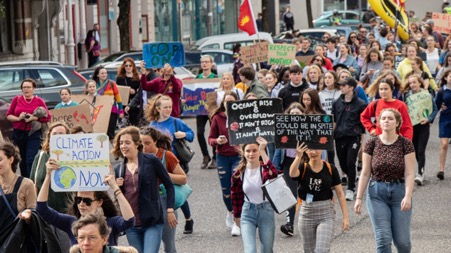Marches, rallies, strikes and protests, there is a lot to be passionate about right now. From Australia Day to climate change and animal rights, protests are becoming an increasingly regular occurrence across Australian towns and cities. Whether these protests are peaceful, violent, loud or silent, more and more people are getting involved to some degree.
The value of protests are a source of unremitting debate and conversation. Its effectiveness is ambiguous. Often, protests can isolate and fragment groups within society. Commuters are arguably more likely to be bothered by an Animal Rights protest that shuts down streets and causes travel delays than convinced by the protestors’ arguments.
Hundreds of thousands of people across Australia participated in the school strike for climate in September 2019. More recently, roads were shut down in Australian cities to protest against Australia Day. In Brisbane, these protests ended with a confrontation and scuffle as a man climbed up on stage arguing against any change.
Recent bushfire protests held across Australian cities were critiqued for adding pressure on already stretched police resources and emergency services. Politicians as well as emergency services staff were critical of the decision to go ahead with the protests, labelling the demonstrations “reckless and selfish”.
Despite this, recent events suggest that there is such an imperative for protest that many new activists are emerging and finding a space to become involved and a way to protest that aligns with their values.
Enter the “Quiet Australians”, an emerging group of activists seeking an alternative to the large, rowdy, protests we are used to. The term emerged from a silent protest held in Sydney’s eastern suburbs and attended by 250 locals, most of whom were protesting for the first time. These silent protests participated in by “ordinary Australians”, those who would normally remain concerned but uninvolved, are expected to become more common, as the necessity for widespread change becomes more urgent.
While the merit of protesting is unclear, and the most effective way in which to protest is disputed, the imperative for protest cannot be denied. The public is increasingly demanding the right to be heard and their message to be listened to, and until something better comes around, protests will be the way to do that.


![5 Reasons You Should Travel Alone Airplane [image source: chau nguyen/ http://thedevilhatessweatpants.blogspot.com.au ], crowd ink, crowdink, crowdink.com, crowdink.com.au](https://crowdink.com/wp-content/uploads/2016/08/Chau-airplane-218x150.jpg)





























